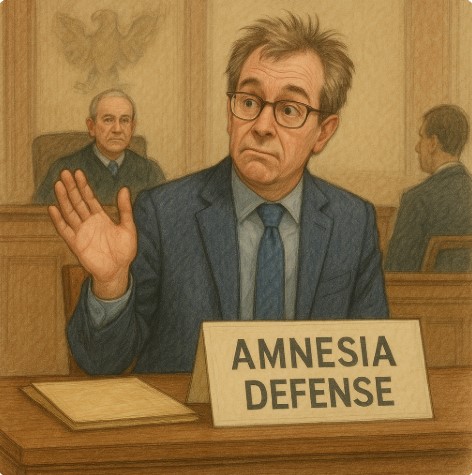Amnesia as a Defense in Arizona Criminal Courts – What Prescott Defendants Should Know

Most crimes in Arizona require intent or at least recklessness. If the State cannot prove that mental state, a conviction should not stand. One rarely discussed (and rarely successful) strategy is the claim that a defendant suffered amnesia at the time of the alleged offense and therefore lacked criminal intent or cannot recall what happened.
Understanding Amnesia
Clinically, amnesia is a disruption of memory formation or recall. It may follow:
- Severe head trauma or concussion
- Stroke, seizure, or other neurological events
- Drug/alcohol intoxication or medication side-effects
- Extreme psychological shock (“dissociative amnesia”)
A qualified neurologist or neuro-psychologist must confirm the diagnosis—typically through cognitive testing, MRI/CT scans, and a complete medical history.
Arizona’s Rules on Mental State
Under A.R.S. § 13-105, almost every felony or misdemeanor requires that the defendant acted “intentionally,” “knowingly,” or “recklessly.” If the defense can establish that a medical condition rendered the defendant incapable of forming that mental state, the jury may have reasonable doubt.
Why Amnesia Rarely Wins Trials
- Lack of objective proof. Simply stating, “I don’t remember,” is not enough. Judges view the claim skeptically.
- Memory loss ≠ lack of intent. A person might intend an act, carry it out, and later forget due to head trauma. That does not erase the original intent.
- Burden of proof on the defense. After the 1980s reform, Arizona defendants carry the burden to show diminished capacity by “clear and convincing evidence.”
Where Amnesia Can Matter
1. Competency to Stand Trial
If the memory loss is so extensive that a defendant cannot assist counsel or understand proceedings, a judge may order a competency evaluation under A.R.S. § 13-4501. Cases pause until competency is restored.
2. Sentencing Mitigation
Even when juries return a guilty verdict, documented neurological impairment may persuade the court to impose a lighter sentence, probation, or placement in a treatment facility.
Key Steps If You Believe Amnesia Is a Factor
- Seek immediate medical evaluation—neurology and neuro-psychology.
- Preserve hospital records, imaging scans, and expert reports.
- Retain an experienced Northern Arizona criminal attorney familiar with medical-based defenses.
Free Consultation – Prescott Office
Theodore A Agnick PC
140 N Montezuma St
Prescott, AZ 86301
(928) 776-1782
Email Us
At Ted Law, we partner with leading medical specialists to evaluate brain injuries, concussion-related memory loss, and psychiatric disorders. Before you speak with detectives or prosecutors, call us. Your consultation is free and confidential.
Disclaimer: This article is for informational purposes only and is not legal or medical advice. Every case is unique; contact a qualified attorney to discuss your specific situation.
